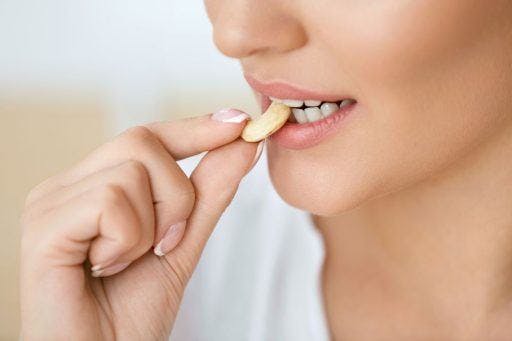A chipped tooth can cause distress, affect your appearance, and even result in pain. But does it really warrant a trip to the emergency room? Or, since it’s fairly common, can you just leave it until your next dental appointment in a few months? Learn the answers to these and other chip-related queries below.
Understanding a chipped tooth

Chipping is a form of dental injury that occurs when a portion of the tooth enamel becomes damaged or comes off. In many cases, a slightly chipped tooth may only cause cosmetic concern and temporarily hamper your confidence. However, more severe fractures can penetrate through the multiple layers and expose the inner parts of the tooth, leading to discomfort or sensitivity.
Teeth that are weak or compromised structurally are more prone to chipping. This can also include hardworking front teeth. Additionally, a study published by the Journal of Endodontics found that dental fractures are common in lower second molars and teeth with fillings. Chipping can occur in both children and adults, although permanent teeth are more susceptible compared to milk teeth.
Chipped tooth causes and risk factors

Tooth enamel is the hardest substance in the human body (it’s as hard as or harder than steel!). An American Physiological Society publication confirms it is “the hardest and most mineralised tissue in extinct and extant vertebrate species.” But it’s also vulnerable to damage. It can turn brittle, weaken, and chip over time.
According to The Journal of the American Dental Association, some common causes of dental fractures include:
- Having an accident, falling over, or being hit in the face
- Grinding and clenching your teeth
- Playing rough, contact, or high-risk sports, like hockey, football, rugby, basketball, gymnastics, and diving
- Eating hard foods, like nuts, ice, candies, and some uncooked vegetables
- Chewing with uneven pressure
- Using teeth as tools, like when opening a bag of chips, and biting into hard objects, like utensils, pen caps, and whistles
- Losing significant tooth structure due to decay
- Putting unnecessary stress on a tooth
- Receiving root canal treatment, which may cause teeth to become more brittle
- Undergoing various emergency medical procedures, like intubation
Malocclusion can also be a contributing factor to chipping. When teeth are misaligned, they can experience uneven forces during biting and chewing, increasing the likelihood of chips. Additionally, poor oral hygiene can exacerbate the situation. Inadequate brushing, flossing, and regular dental checkups can lead to tooth decay and weakened enamel, making the teeth more prone to fractures.
To know if you have misalignment or bite issues, take this online smile assessment today.
Wondering if orthodontic devices can cause chipping? They likely won’t, unless you wear them incorrectly or remove them carelessly. Since aligners like ClearCorrect are meticulously custom-made to fit securely over the teeth, the risk of incurring fractures while using them is low.
Chipped tooth first aid

First, contact your dentist and notify them about your situation. “Be sure to inform them over the phone that you’ve had an accident so they can see you as soon as possible,” says the Australian Dental Association (ADA).
While waiting for your appointment at home, rinse your mouth with warm saltwater to cleanse the area. If you experience swelling, apply a cold compress to the affected area for 15 minutes. Over-the-counter pain relievers can also help manage any discomfort.
ADA advises placing any broken tooth fragment in a container with a small amount of milk or saliva. Keep it moist but do not place it in water. Additionally, avoid wrapping the tooth in tissue or cloth, which can dry it out.
Why you should see an oral health professional
Remember: Early repair improves the survival of a chipped tooth.
Even without pain, your tooth needs proper assessment by a healthcare professional. They can determine the extent of the damage, suggest appropriate treatment options, and restore the tooth’s appearance and functionality. “Not having your teeth checked by a dentist after a mouth injury may cause long-term damage that could have otherwise been avoided,” advises the ADA.
Chipped tooth fixes and treatment options
Once your dentist sees your tooth, they will diagnose the issue and discuss the options to restore it. They can suggest any of the following:
- A dental crown to cover the broken tooth
- A tooth filling to cover the area
- Root canal treatment, especially if nerves are exposed
- Dental implants to replace an entire tooth
- Porcelain veneers that cover the front of the teeth
- Tooth extraction, if the chip extends to the gumline
Complications of a chipped tooth
Is it worth fixing a chipped tooth? It sure is! Otherwise, you might have to deal with the following consequences:
- Cuts in the mouth
- Tooth sensitivity
- Gum disease
- Tooth loss
- Oral infection
Is it okay to leave a slightly chipped tooth? It’s still best to restore the tooth to avoid problems with biting, eating, or smiling. And just because the chip is small and contained on the outer enamel layer doesn’t mean there’s no damage or it won’t worsen. So, see your dentist, begin to prioritise your oral health, and start the journey towards restoring your smile.
References:
Department of Health & Human Services. (n.d.). Dental injuries – Knocked out, chipped or cracked teeth. Better Health Channel.
Harvard Health. (2014, March 9). When teeth get damaged.
Healthdirect Australia. (n.d.-a). Dental injury. Healthdirect.
Kang, S. K., Kim, B. S., & Kim, Y. (2016). Cracked Teeth: Distribution, Characteristics, and Survival after Root Canal Treatment. Journal of Endodontics, 42(4), 557–562.
Lacruz, R. S., Habelitz, S., Wright, J., & Paine, M. L. (2017). Dental Enamel Formation and Implications for Oral Health and Disease. Physiological Reviews, 97(3), 939–993.
NHS. (2022, May 19). Chipped, broken or cracked tooth. nhs.uk.



